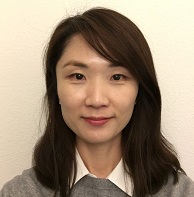Our
Mission
Women in Computer Architecture (WICARCH) is designed to create a community for women studying and working in the field of computer architecture. Our goal is to promote women in computer architecture and increase visibility for their research and development contributions. We welcome participation from all women including students, post docs, industry researchers and developers and faculty members. To be listed in our directory, please click here.
Profiles of WICArch
The mission of this section is to profile women in computer architecture across many walks of our field, from [junior, senior] x [industry, academia].
If you would like to be profiled, would like to nominate someone to be profiled, or would like to write a profile, please let us know by wicarch-chair@acm.org
Mengjia Yan

Dr. Mengjia Yan is undoubtedly one of the most delightful people you will ever meet – smart, positive, exceedingly wise beyond her years, and the kind of person who can turn a frown upside down. She was paired with me as a mentee at ISCA 2018, but I genuinely think that it is I who have benefited from the relationship. These days, she is a new assistant professor at MIT, having recently completed her PhD at the University of Illinois at Urbana-Champaign in 2019.
WICArch Directory
We actively maintain a list of women working in the field of computer architecture. The goal of this list is many-fold. First, the list services as a resource for program chairs and conference organizers to identify women to serve in key technical roles such as keynote, panels and program committees. Second, the list is designed to foster community and help women connect with other women in computer architecture. This list can be used by current and potential graduate students to find advisors and mentors. Four profiles, selected randomly, are shown below. We encourage you to browse the full directory.

Hyeran Jeon
Assistant Professor
University of California, Merced
Personal URL
Hyeran Jeon is an Assistant Professor at the University of California Merced. Her research interests lie in energy-efficient high-throughput processor and systems design. She earned her Ph.D. at the University of Southern California in 2015. She spent her summer at IBM T.J. Watson Research Center and the fall at AMD Research as a research intern in 2012. Before pursuing her Ph.D., she worked as a systems software engineer at Samsung Electronics, Korea from 2002 to 2009. Hyeran obtained her M.S. from Georgia Institute of Technology and Korea University in 2008, and B.S. from Pusan National University, Korea in 2002.
Architecture For Emerging Technologies and Applications, Instruction, Thread and Data-Level Parallelism, Processor, Memory, and Storage Systems Architecture
Shuang Chen
PhD Student
Cornell University
Personal URL
Shuang Chen is a third-year Ph.D. student in the Computer Systems Lab at Cornell University, advised by Prof. José F. Martínez and Prof. Christina Delimitrou. She is generally interested in computer architecture and systems, with a focus on datacenters and architectural support for emerging memory technologies.
Architecture For Emerging Technologies and Applications, Datacenter-Scale Computing, Processor, Memory, and Storage Systems Architecture
Mirjana Stojilović
Scientist
EPFL
Personal URL
My research interests lie in field-programmable technology and electronic design automation, with increasing focus on the hardware security vulnerabilities of today’s heterogeneous and intelligent computing systems.
Accelerator-Based, Application-Specific and Reconfigurable Architecture, Architectural Support For Security Or Virtualization
Bahar Asgari
Assistant Professor
University of Maryland, College Park
Personal URL
Bahar Asgari is an assistant professor in the Department of Computer Science at the University of Maryland, Collage Park with a joint appointment in UMIACS. Before joining UMD in August 2022, she spent a year working at Google on its Systems and Services Infrastructure team. She received her Ph.D. in electrical and computer engineering from Georgia Tech in 2021, where she was advised by Dr. Sudhakar Yalamanchili and Dr. Hyesoon Kim. Bahar’s research interests include but are not limited to domain-specific architecture design, near memory processing, and reconfigurable computing. Her proposed low-cost hardware accelerators and hardware/software co-optimization that deal with essential challenges of sparse problems contribute to a widespread application domain from machine learning to scientific computing.
Accelerator-Based, Application-Specific and Reconfigurable ArchitectureInitiatives
We organize various initiatives to better connect women in computer architecture.
Join Our Mailing List
2. Update your gender in your myACM account (create/activate account as needed)
Join Our Slack Channel
We offer an informal mentoring program through our slack channel (wicarch.slack.com). Women at all career stages are encouraged to join. The mentoring program provides an easy way to connect with other women and receive advice on a wide range of career and personal issues.
If you need assistance in joining our mailing list or slack channel, please send email to wicarch-chair@acm.org.
This website serves women in the field of computer architecture.
© 2021 SIGARCH.
